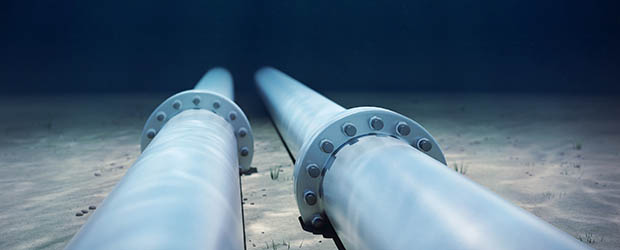The EU-funded Acorn project will use existing natural gas pipelines and infrastructure to create a low-cost full-chain CCS pathway that will help the UK transition into clean energy.
Georgina Hines
St Fergus Gas Terminal. Image: ACT Acorn
The UK’s efforts to move towards clean energy can be seen around the UK, whether it’s the wind turbines across the hills of the countryside or solar panels on the roofs of city skyscrapers. There is, however, a technology that most people will never see, and it is set to be one of the biggest breakthroughs in a low-carbon economy yet.
Deep in the North Sea are miles of offshore pipelines, once used to transport natural gas to the UK. The pipelines all lead to a hub called the St Fergus Gas Terminal – a gas sweetening plant used by industry – that sits on the coast of north-east Scotland.
This network has now been reimagined as a low-cost, full-chain carbon capture, transport and offshore storage that will provide the UK will a viable solution to permanent carbon capture and storage (CCS) called the Acorn project.
CCS is a process that takes waste CO2 produced by large-scale, usually industrial, processes and transports it to a storage facility. The site, likely to be underground, stops the waste CO2 from being released into the atmosphere, storing it for later use for another purpose, such as the production of chemicals for coatings, adhesives or jet fuel.
High levels of CO2 in the atmosphere have been linked to global warming and the damaging effects of climate change, and CCS is one of the only proven solutions to decarbonisation that industry can currently access.
Taking advantage of existing infrastructure means that the Acorn project is running at a much lower cost and risk to comparable projects and is expected to be up and running by 2023. It is hoped the project will bring competitiveness and job retention and creation across the UK, particularly in the industrial centres of Scotland.
‘Funding for the Acorn CCS project is an important first step towards decarbonising industry in Scotland as part of the UK’s overall efforts,’ says Professor Stuart Haszeldine, Director of Scotland Carbon Capture & Storage (SCCS), an academic partner of the project.
‘Several years of work, by SCCS, Pale Blue Dot and others, have confirmed the benefits of re-using legacy engineering equipment, pipelines and well-understood geological storage,’ Professor Haszeldine noted. ‘In all of Europe, North-East Scotland is the location where CCS can be built most rapidly, with low-cost CO2 transport and very secure storage sites.’
Can we stop climate change by removing CO2 from the air? | Tim Kruger. Video: TED
The project has attracted interest from the government, who said Acorn had ‘unique potential’ in the development of CCS, and the technology has appeared in the UK’s Clean Growth Strategy. Researchers at the St Fergus hub hope that success of the Acorn project will lead to the expansion of build-out options that would help Scotland supply a CCS pipeline to Northern Europe.
This plan was validated in 2017 when the project received funding from the Advanced CCS Technologies funding round from Horizon 2020 to finance feasibility studies in 2017-18. CO2DeepStore, a subsidiary group of PBD, is in charge of the project and are working with European partners across the UK, Norway and The Netherlands.
‘This is a significant endorsement for this innovative project, the benefits of which have been seen by the nine EU member states involved in the evaluation,’ said Alan James, Managing Director of PBD Energy, at the time of the announcement.
As of September 2018, the project is reported to be 90% complete, having achieved 16 of its 21 set deliverables. One of the major next steps for the project will be undertaking research focused on the public perception and understanding CCS and its role in a transition to a low-carbon future. The work will be led by Radboud University in The Netherlands.
‘Acorn also lights a path to sustainable offshore engineering and employment for many decades into the future,’ says Professor Haszeldine. ‘Becoming a careful early mover in this new industry can help us win a place in the business of CO2 storage for the UK and mainland Europe.’

